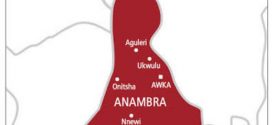Welcome one and all to the commissioning of Woodhill Estate of AKACARE Cooperative Housing Scheme and the flag-off of our cooperative housing initiative, one of the series that will happen in each of the six (6) geo-political zones of Nigeria and the Federal Capital Territory.
One of the NEXT LEVEL commitments of the Federal Government of Nigeria as declared by President Buhari at the ministerial retreat held in September 2019, is to deepen access of Nigerians to affordable housing and consumer credit.
This is a mandate item of the housing sector of the Ministry of Works and Housing; as the policymaking arm of government, and we have assigned the Federal Mortgage Bank of Nigeria (FMBN) a parastatal of the Ministry of Works and Housing, the implementation responsibility for executing our policy of PARTNERSHIPS with cooperatives.
For those who may wonder, why cooperatives? The answer is simple.
By definition, co-operatives are “an autonomous association of persons united VOLUNTARILY to meet their common economic, social and cultural needs and aspirations through a jointly-owned enterprise.”
The key word in that definition is the “voluntary” nature of cooperatives, and this is critical in the formulation of our policy of partnerships with cooperatives as a means of overcoming the problems of “Acceptability” and affordability that stand in the way of access to housing.
This is important because our experiences, our investigations and our observations reveal starkly that there are hundreds of thousands of empty and unoccupied houses in major cities across Nigeria.
They are empty and unoccupied because they are either over-built, in being too big, or under-built in being too small and therefore not acceptable to those who need them, because in many instances no consultation took place between the builders and the consumers they built for.
This is why we are undertaking a pilot scheme based on our studies to build in 34 states who provided land, what the people we consulted said they will find acceptable.
Because of the lack of consultation and acceptability problem, the problem of affordability creeps in.
Our policy development team finds the voluntary nature of cooperatives very useful because members will be expected to design and build according to their needs and their income, as they find affordable.
Co-operatives have traditionally proved to be successful in areas like transportation, agriculture, trade and commerce, market associations and amongst large groups in the informal sector.
It is these large members of the informal sector that we seek to reach, scale up constructions of houses and the multiplier effects on the economy for cottage industries who make building materials like paint, doors, roofing materials, nails, and electrical fittings to mention a few.
The scale of construction by voluntary associations is expected to ramp up employment and income for artisans who will build houses. This will be our contribution to President Buhari’s commitment to raise a hundred million out of poverty in a decade.
As in other sectors, when cooperatives have been successful, we can point to modest successes of partnerships by FMBN with some cooperatives in the formal sector that currently has 52 housing projects under construction to deliver 4,624 units in 2020.
It is this number, that the policy we flag-off today seeks to multiply in many fold by unleashing the power of cooperatives and empower their voluntary will to act together in pursuit of the common desire to access housing and credit.
In order to be eligible, cooperatives must be registered, they must acquire their own land, get title to it, seek and obtain a building permit from the governments of the respective states where their land is located.
This last requirement is instructive because it seeks to eliminate incidents of unapproved buildings and slums which governments later seek to demolish.
All the state government agencies in charge of land have been duly briefed at the National Council launch meeting held in Abuja on November 7th 2019.
The Mandate and the role of the FMBN is to then provide construction funding to the cooperatives to build the houses, and to provide mortgage finance to the individual members to buy the house and pay back in instalments at a rate not exceeding 10% per annum.
Ladies and gentlemen, this is the sum and substance of the policy and partnerships that bring us to Kuje, in the FCT today because AKACARE cooperative has embraced this NEXT LEVEL initiative to deepen access to housing and consumer credit.
It is therefore my honour and pleasure to flag off this cooperative partnership in the hope that it will quickly spread to other states in this Geo political zone.
As every cooperative chooses what it desires and can afford, the FMBN, representing the Federal Government of Nigeria will be your partner, providing financial support to enable you to act voluntarily to choose and build what you accept and your income can afford.
On behalf of President Muhammadu Buhari and the Federal Government of Nigeria, I commission this Housing Estate and flag off this co-operative development away from poverty and towards common prosperity
 Hottestgistnaija.com
Hottestgistnaija.com




